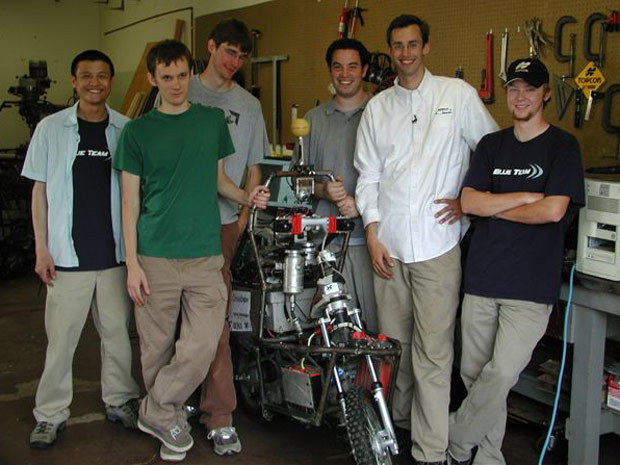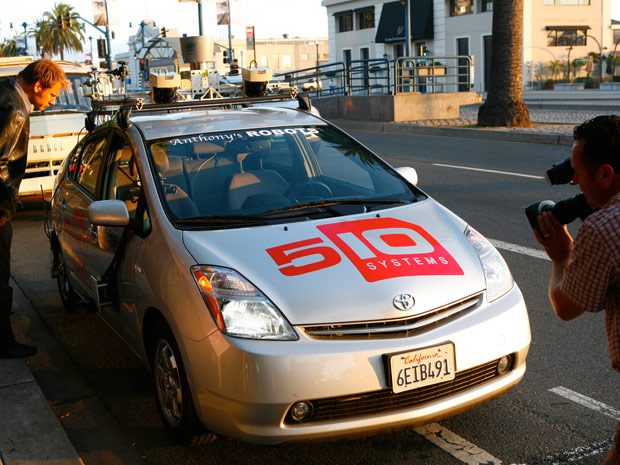A federal court could soon block car-hailing company Uber’s attempts to continue work on its self-driving car project. Waymo, the Google self-driving car project that was recently spun off, claims that Uber is using information stolen by Anthony Levandowski, former Google employee and co-founder of Otto, a tech company developing self-driving truck technologies.
Waymo first sued Uber in February, accusing the company of “colluding” with Levandowski to “steal crucial parts of Waymo’s technology” to speed up its own autonomous vehicle agenda.
Filed testimony from Google employees reportedly show that Levandowski and two other former Google employees downloaded over 14,000 files from a restricted Google Drive location, and could have moved the 9.7GB of data in question to a memory card that was attached to Levandowski’s laptop for at least 8 hours.
It started out with Waymo receiving an email in error, which showed blueprints of Uber’s circuit board design for LiDAR (light detection and ranging) technology that is used in autonomous vehicles. In the initial lawsuit, Waymo claimed that those designs bore “a striking resemblance” to those used in the Google self-driving car project.
While he was still on Google’s rolls, Levandowski allegedly told a Waymo hardware engineer that he wanted long-range LiDAR for his own start-up, and that he was looking to “replicate” the technology Waymo was using. The engineer, Yves Droz, also said that Levandowski had earlier told him that he intended to start a self-driving car company and that Uber would want to look at “buying the team” that worked on LiDAR for Google.
Droz also spotted Levandowski at Uber headquarters, upon which Levandowski admitted to Droz that he had met with Uber executives as potential investors in his business.
Incidentally, Droz and Levandowski were behind 510 Systems and its sister company, Anthony’s Robots, which Google quietly acquired in 2011. Despite Sebastian Thrun being pushed to the forefront as the man behind Google’s self-driving car initiatives, there is evidence to show that Levandowski was the actual motivating force behind Google’s program.
Levandowski’s experience with autonomous driving started in 2005, when he had just graduated from the University of California, Berkeley. That same year Levandowski entered a self-driving 90-cc motorcycle that he called Ghostrider into the 2005 DARPA Grand Challenge. It was the only two-wheeler in the challenge, but what’s significant is that Sebastian Thrun was one of the other entrants.

While Ghostrider depended on GPS and a stereo camera for its self-driving technology, Thrun’s Volkswagen SUV, called Stanley, used 3-D LiDAR technology that was far more expensive. Ghostrider did okay, managing to balance on its own, navigate the course and even right itself after falling over. It beat dozens of four-wheeler rivals, but not Stanley. Ghostrider was, unfortunately, eliminated at the semifinals, but Levandowski had found his calling.
The 510 Systems acquisition itself was a hush-hush matter, and Google reportedly did not want the publicly reveal it. To that end, it had some of the company’s employees sign non-disclosure agreements about the deal. Even the official Google self-driving car project’s history makes no mention of 510 Systems. It continues to credit Thrun for the project.
But the fact remains that one of the cars Google used in the world’s first self-driving car test in Nevada, in April of 2012, was a 2008 Toyota Prius registered to 510 Systems under the name of Suzanna Musick. When asked about the name mismatch by a Nevada DMV official (Google was not mentioned in the VIN or the insurance card), Levandowski reportedly said: “510 Systems is part of Google, as Google purchased the company six months ago. Suzanna is/was their CEO.”
However, Waymo is not getting into any of that. Their contention appears to be that Levandowski “stole” Google-developed, in-house LiDAR designs and technology and sold it to Uber via Otto.
This lawsuit is a big deal because it could potentially set Uber back several years, if the federal court decides to block their development and testing of self-driving cars. More importantly, it will give Waymo a huge lead in the autonomous vehicle technology race.
The gist of the legal action is that Waymo is now calling for a preliminary injunction against both Otto and Uber. The hearing for the motion is set for April 27.
Thanks for reading our work! Please bookmark 1redDrop.com to keep tabs on the hottest, most happening tech and business news from around the world. On Apple News, please favorite the 1redDrop channel to get us in your news feed.



